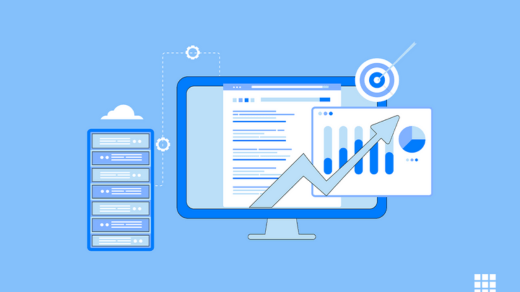Web Hosting for Nonprofits: Affordable Solutions for a Cause

Nonprofit organizations often require cost-effective web hosting solutions to promote their cause and engage with supporters. Here are 30 points discussing the pros and cons and offering recommendations for web hosting for nonprofits:
1. Nonprofit Hosting Needs:
- Pros: Nonprofits can find affordable hosting tailored to their specific needs.
- Cons: Limited budgets may restrict hosting options.
2. Shared Hosting for Small Nonprofits:
- Pros: Budget-friendly option for smaller nonprofits with basic websites.
- Cons: Limited resources may affect performance as the organization grows.
3. VPS Hosting for Scalability:
- Pros: Offers more resources and scalability as nonprofits expand.
- Cons: Costs may increase with growth.
4. Dedicated Hosting for Large Nonprofits:
- Pros: Ideal for resource-intensive websites with high traffic.
- Cons: Expensive and may require technical expertise.
5. Free Hosting for Very Small Nonprofits: – Pros: Some providers offer free hosting plans for nonprofits with minimal needs. – Cons: Limited resources and support with free plans.
6. Managed WordPress Hosting: – Pros: Optimized for WordPress, simplifying site management for many nonprofits. – Cons: Limited to WordPress websites.
7. Budget Considerations: – Pros: Determine a budget and choose hosting that fits within financial constraints. – Cons: Extremely low-cost hosting may lack essential features.
8. Nonprofit Discounts: – Pros: Some hosting providers offer discounts or special pricing for nonprofits. – Cons: Discounts may come with limitations.
9. Customer Support Quality: – Pros: Prioritize hosting providers with responsive support for nonprofit-specific needs. – Cons: Poor support can lead to unresolved issues.
10. Security Features: – Pros: Ensure robust security measures to protect donor and supporter data. – Cons: Inadequate security can lead to breaches and trust issues.
11. SSL Certificate: – Pros: Essential for encrypting data and establishing trust with website visitors. – Cons: SSL setup may require technical knowledge.
12. Backup Solutions: – Pros: Regular backups safeguard against data loss and website downtime. – Cons: Backup management is your responsibility.
13. Email Hosting: – Pros: Look for email hosting as part of your package for professional communication. – Cons: Email issues can impact nonprofit communication.
14. Control Panel Ease: – Pros: Choose a user-friendly control panel for easy website management. – Cons: Complex control panels can be overwhelming.
15. Uptime Guarantee: – Pros: Hosting providers offering high uptime ensure your site is consistently available. – Cons: Frequent downtime can affect your nonprofit’s reputation.
16. Data Transfer Limits: – Pros: Determine if hosting plans offer sufficient data transfer limits for your website. – Cons: Exceeding limits may result in overage charges.
17. Review Hosting Plans: – Pros: Carefully review and compare hosting plans to find the best fit for your nonprofit. – Cons: Rushed decisions may lead to unsuitable hosting.
18. Domain and DNS Management: – Pros: Simplify domain registration and DNS management with integrated services. – Cons: Complex domain issues can arise.
19. Technical Expertise: – Pros: Leverage your nonprofit’s technical skills or seek volunteers to manage hosting. – Cons: Lack of expertise can lead to issues.
20. Content Delivery Networks (CDNs): – Pros: Use CDNs to enhance site speed and performance. – Cons: CDN setup may require additional configurations.
21. Mobile Optimization: – Pros: Ensure your nonprofit’s website is mobile-friendly for a better user experience. – Cons: Neglecting mobile optimization can affect search rankings.
22. Traffic Analytics: – Pros: Use analytics tools to track website traffic and user behavior for better insights. – Cons: Setting up analytics can be complex.
23. Backup Power and Redundancy: – Pros: Hosting providers with backup power and redundancy reduce downtime risk. – Cons: Lack of backup measures can lead to outages.
24. Acceptable Use Policies: – Pros: Understand and adhere to hosting provider’s policies to prevent account suspension. – Cons: Violations can result in hosting account termination.
25. Regular Updates: – Pros: Keep your nonprofit’s website software, plugins, and themes updated for security. – Cons: Neglecting updates can lead to vulnerabilities.
26. Data Privacy and Compliance: – Pros: Ensure compliance with data privacy regulations to protect donor data. – Cons: Compliance efforts can be resource-intensive.
27. Technical Infrastructure: – Pros: Hosting providers with robust technical infrastructure offer better reliability. – Cons: Server issues may impact your nonprofit’s website.
28. Website Backup Strategy: – Pros: Implement a backup strategy to safeguard nonprofit data and recover from incidents. – Cons: Inadequate backups can result in data loss.
29. Monitor and Optimize: – Pros: Continuously monitor nonprofit website performance and optimize for better results. – Cons: Neglecting monitoring can lead to missed opportunities.
30. Nonprofit Website Impact: – Pros: Use hosting to amplify your nonprofit’s impact and reach a broader audience. – Cons: Hosting issues can hinder your ability to connect with supporters.
Choosing the right web hosting for your nonprofit is crucial for promoting your cause effectively and efficiently. Carefully evaluate your nonprofit’s needs, budget, and technical capabilities to select the hosting solution that best supports your mission.





